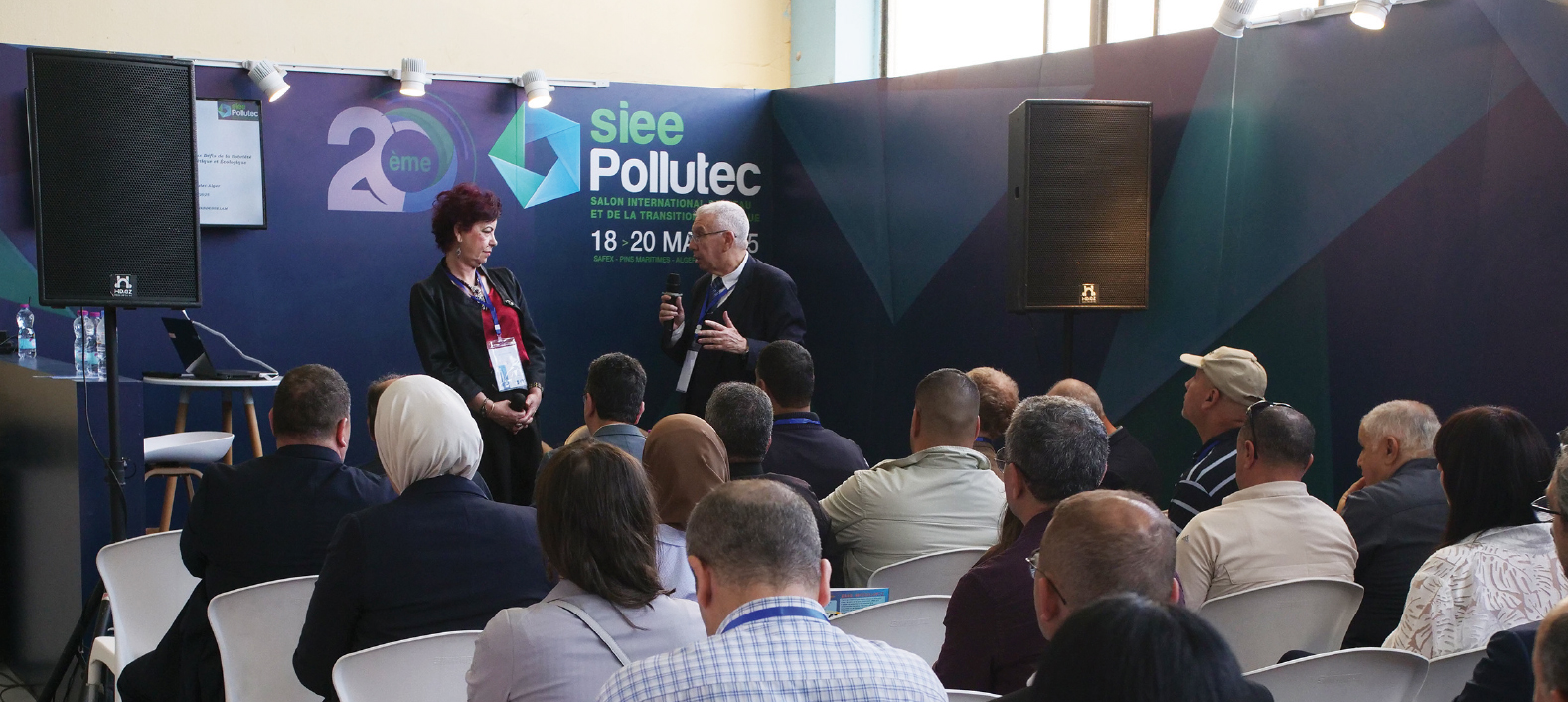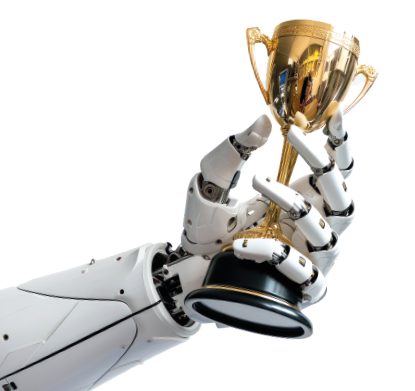Visitors
200
Exhibitors
60
Conferences


The 21st Edition of SIEE-Pollutec, the International Exhibition for Water, Energy, and the Environment, stands as a major gathering for professionals committed to the sustainable management of natural resources and ecological transition. Organized by Symbiose-Communication-Environnement, this flagship event has, since 2005, confirmed its role as a strategic platform for networking, innovation, and cooperation among public, private, and institutional stakeholders in the sector.
In a context marked by climate urgency and the need to rethink our development models, SIEE-Pollutec 2026 highlights technological, industrial, and regional solutions to address major challenges in water management, energy efficiency, the circular economy, and environmental resilience.
A Unifying Exhibition Driven by Solutions
• Over 200 exhibitors, representing a broad range of expertise and know-how
• A strong international presence
• An exhibition space rich in innovations, equipment, services, and sustainable technologies
• A program of conferences, forums, and technical workshops bringing together researchers, decision-makers, experts, and professionals around key themes related to water, energy, and the environment

As part of the exhibition dedicated to water, energy, and the environment, several thematic forums will be held throughout the event. These discussion spaces will bring together experts, professionals, institutions, and industry stakeholders to explore key topics such as sustainable resource management, energy transition, technological innovation, and climate challenges.
As true highlights of the exhibition, these forums will offer a space for reflection, the sharing of best practices, and forward-looking dialogue to collectively build sustainable solutions.




Honoring the Pioneers of Ecological Transition!
As part of the Water, Energy & Environment Exhibition, we are launching the 2026 Innovation Competition, dedicated to companies and start-ups shaping a sustainable future.
This competition highlights the most innovative solutions in the following areas:
• Sustainable water management (treatment, recycling, access)
• Renewable and alternative energy sources
• Energy efficiency and decarbonization
• Waste reduction and resource recovery
• Clean technologies and environmental monitoring
Objective
To promote ideas that combine environmental impact, economic viability, and large-scale deployment potential.
Who can apply?


WATER RESOURCE MANAGEMENT
Treatment – Distribution – Sanitation – Seawater Desalination
NETWORK MANAGEMENT AND PROCESS PERFORMANCE
Pipelines – Pumps – Valves – Irrigation
COLLECTION, CLEANING, HYDROJETTING
WASTE TREATMENT
RECYCLING – REUSE: MATERIALS AND SUBSTANCES
ENERGY
Renewable Energies – Conventional Energies – Energy Efficiency – Energy Recovery
CONTAMINATED SITES AND SOILS
RISKS (PREVENTION AND MANAGEMENT)


– Structural water stress: Algeria is ranked among the countries most exposed to water stress, with less than 500 m³ of freshwater per capita per year—well below the critical threshold of 1,000 m³.
– High dependence on conventional resources: Dams and groundwater remain the main sources of supply, but are increasingly affected by climate variability, overexploitation, and pollution.
– Strategic responses: The government is focusing on:
Seawater desalination (target: 60% of drinking water to be supplied through desalination by 2030).
Reuse of treated wastewater, still limited but gradually expanding.
Modernization of water infrastructure to reduce losses (currently estimated at around 30% to 40%).

– Algeria is a major producer of hydrocarbons (oil and natural gas), which account for over 90% of its exports.
– Domestic energy consumption is rising rapidly, reducing export capacity.
– Renewable energy remains underdeveloped (less than 2% of the energy mix), despite strong solar potential estimated at over 3,000 hours of sunshine per year.
– The country has adopted energy transition plans, aiming to produce 15,000 MW of renewable electricity by 2035, but greater investment and regulatory support are needed.

– Water and air pollution, soil erosion, overexploitation of natural resources, and biodiversity loss are major challenges.
– Urban areas suffer from inadequate waste management and demographic pressure.
– Algeria has launched reforestation programs, waste recovery initiatives, and anti-desertification efforts, but implementation remains limited due to a lack of resources and coordination.





